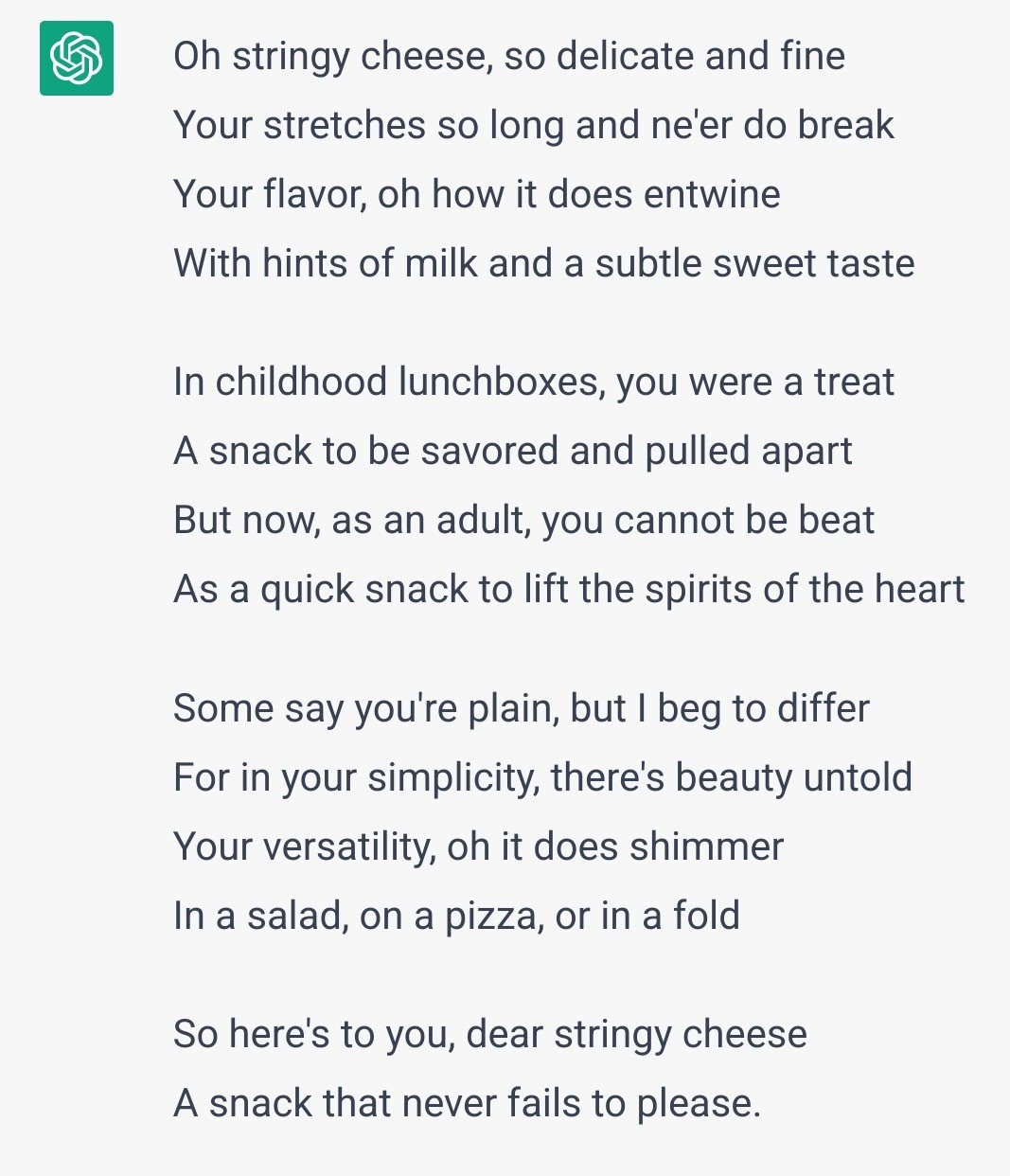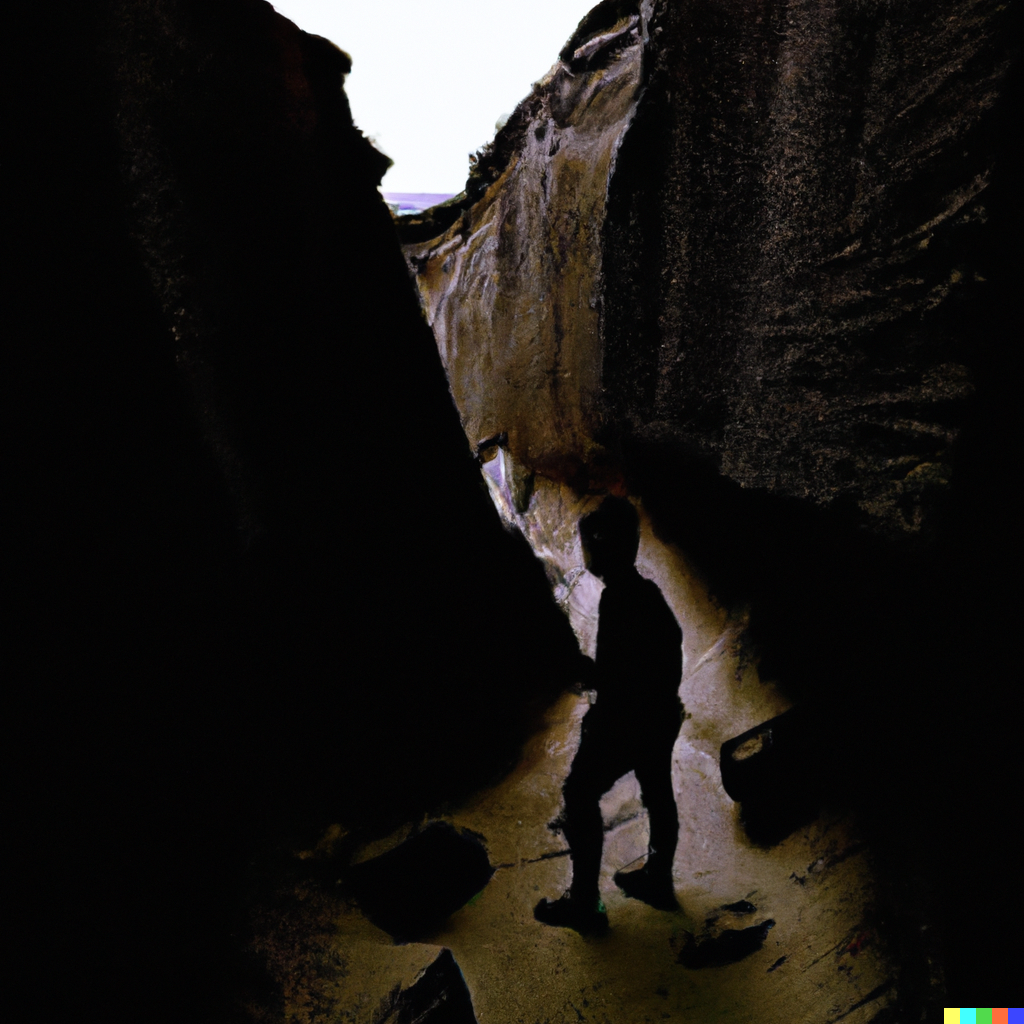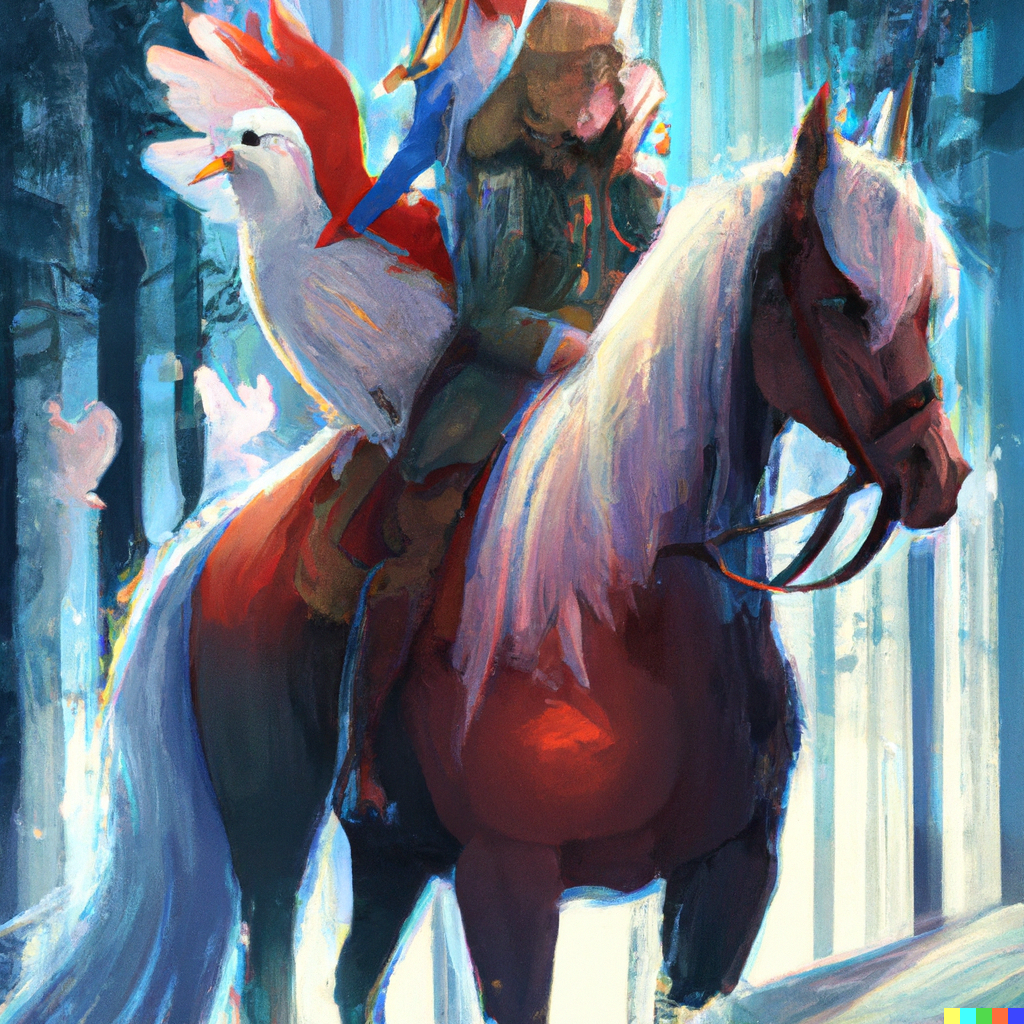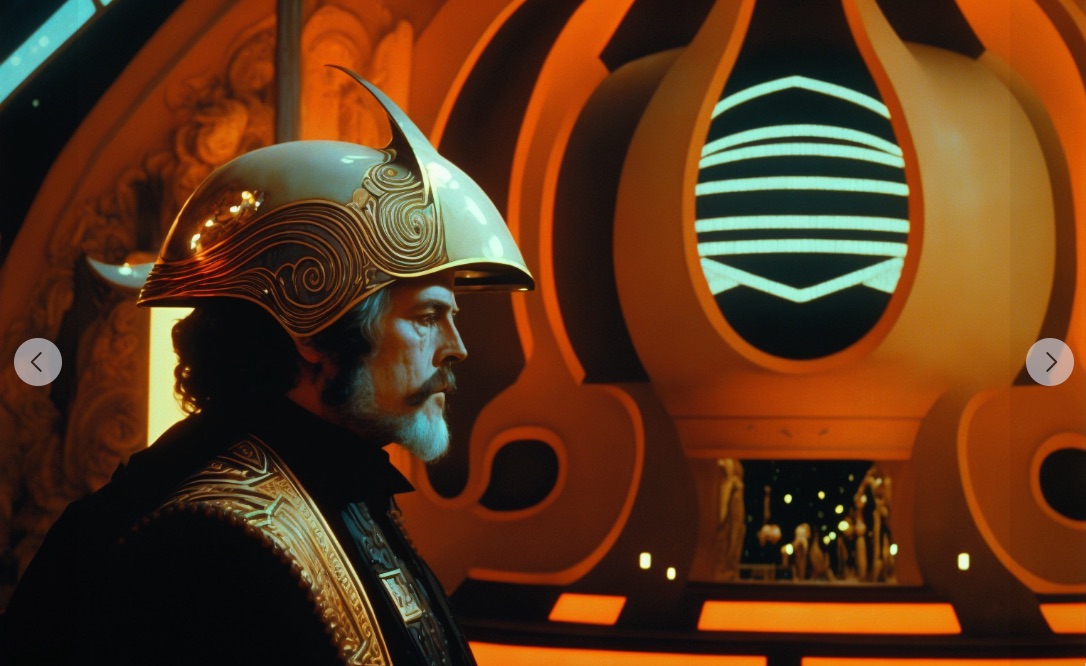The state of artificial intelligence
AI seems to bring about awe and terror in equal measures these days -- with good reason. Some of the artificial intelligence tools that have become available to the general public fall into the category of "scary good" -- they have the power to create works of seemingly stunning brilliance, or at least impressive competence. That conjures up fears from economic ("how many jobs -- and types of jobs -- will be replaced by AI and automation in the coming years?") to political ("how easy is it to fool people into believing something artificially created is real?") to existential ("how long until the robot overlords take over the world?!").
Here are a few examples of recent AI tools that have made a splash, followed by a brief discussion of some of the dangers and ethical conundrums pressing in on us with the advance of AI.
1. ChatGPT
ChatGPT was released to the public on November 30, 2022. It offers a conversational interface to interact with a large language model (GPT-3) that has been extensively trained to provide convincing answers, dialogue, and text-based outputs from a seemingly infinite variety of prompts.
Folks on the internet quickly got to work experimenting with ChatGPT, discovering promising use cases, entertaining outputs, and weak spots where the technology sees to fall down into the Uncanny Valley.
SEO trainer and coach Danny Richman developed a system to help a business owner with poor literacy skills compose professional business emails. Jonas Degrave discovered how to create an entire virtual machine inside ChatGPT. Here is my attempt to assess ChatGPT's poetic skills, to hilarious result:

As the newest of AI offerings currently wowing the general public, expect to see a lot more interesting use cases and amusing not-quite-fails shared by users probing the limits of this strange new technology.
2. DALL-E 2
While ChatGPT is oriented around creating text and conversations with AI, DALL-E 2 is artificial intelligence for image creation. The tool can create realistic images as well as fantastical artistic renditions from natural language prompts, including riffs on famous artists.
Some of the creations are quite stunning, and many collections of the best DALL-E 2 art are cropping up on the internet. Here's a primer on how to use DALL-E 2 to create art for yourself, and a couple of my own examples below:
"I walk through the valley of the shadow of death"

"Twitter and Russia together on a horse in the woods, digital art"

3. Jodorowsky's Tron
Using a different AI image platform called Midjourney, Johnny Darrell created a mashup of the distinctive art style of the never released version of the film Dune by avant-garde filmmaker Alejandro Jodorowsky with the distinctive art style of the cyber-classic movie Tron, in Jodorowsky's Tron.

Twitter user Rob Sheridan piggybacked on Darrell's creation with a parody mashup of his own, in Jodorowsky's Frasier.

AI dangers
The first two examples above were created by OpenAI, a non-profit organization founded in 2015 with $1 billion from tech billionaires Elon Musk and Peter Thiel -- whose dubious ethics, extreme right-wing worldviews, and careless or nefarious antics in the public sphere have drawn much scrutiny over the years (particularly recently, with Musk's arguably disastrous takeover of Twitter).
AI ethics researcher Timnit Gebru -- famously fired by Google for essentially doing her job exceedingly well -- recently wrote about the connection of OpenAI to the Effective Altruism movement and the spectacular fall from grace of FTX's Sam Bankman-Fried, a cryptocurrency billionaire and key acolyte of the EA movement. She writes convincingly about the essential "cult structure" of what EA purports to be doing -- working towards "beneficial AI" -- by first abandoning any real attempts at ensuring AI safety and discarding concerns for the considerable ethical implications of AI and simply racing as fast as possible into the unknown.
I agree with Gebru about the recklessness of racing towards some promised techno-utopian world while tossing aside the guardrails of critical thinking and societal wisdom built up over years, decades, centuries, and millennia. Power corrupts -- and greater caution is warranted here. We will undoubtedly continue to be seduced by the fun of these AI tools, but we should not lose sight of the incredibly profound implications they hold for our society, both current and future.
Caveat chattor.